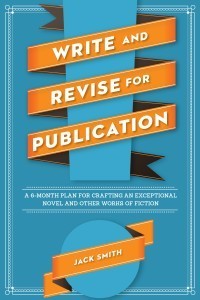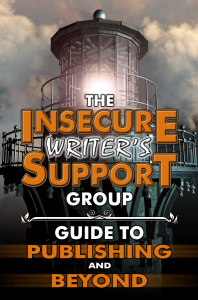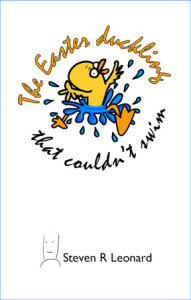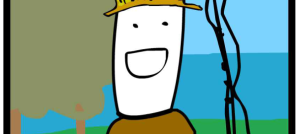Riley Adams's Blog, page 125
December 19, 2014
Pruning Your Novel
Guest Post by Jack Smith
Revising a novel often calls for a bit of pruning. Some material must undoubtedly go, anything that doesn’t contribute pretty directly to the plot and your protagonist’s overall arc. If it’s material you feel pretty ho-hum about, good—it’s gone. You’re happy to see it go. But if you feel really invested in it, and you’ve done a lot of work on it, then cutting it can be something of a heart-breaker. You hesitate. Should you?
What kinds of material? The following are some candidates for pruning:
Characters who are rather peripheral to the plot, or to your protagonist’s overall arc. These characters might be quite compelling, with interesting links to other characters. Their dialogue might be scintillating. They might contribute in some way to a particular setting. All to the good. But . . . however interesting they are, however much time you spent in trying to make them interesting, however much you worked and re-worked the descriptive details that make them alive in word and gesture, they’ve got to go. Unless you can broaden the scope of your novel. That’s, of course, a possibility, but ask yourself: What is the new unifying principle? What is my plot now? How long is this going to make my novel?
Scenes that are overlong, cause repetition, or they’re too tangential. These scenes might do all a scene should do: include lively dialogue, spark conflict, relate to key conflicts in the work, and introduce or advance a thematic idea or two. The setting details might be quite vivid. But as it is, they’re rather repetitive of other scenes, and a few of them are a bit off track, plot-wise. They get your novel in the weeds a bit. Summary would probably work better instead of these scenes—perhaps summary with a few half-scenes to pull the reader in. But it’s going to be painful to part with these splendid scenes. Must you really? You’ve spent hours and hours at refining them. Perhaps the reader won’t even notice the repetition . . . the only thing is, you are beginning to notice the repetition yourself. And so . . .
Certain subplots. Perhaps these plot threads thicken things up. But, as with other candidates for the shears, they seem to sidetrack the reader too much. Maybe if you were to write a considerably longer novel, they would work. But that might mean going way over 100,000 words, and that’s not too advisable if you seek publication. Well . . . and so . . .
When you get into the thick of novel revision, you’ll probably face a bit of necessary pruning, perhaps cutting some very good stuff. But don’t just dump it; save it for future novels. And it is possible that once you’ve done the pruning, you’ll actually be glad you did it. It’s no fun to snuff out good characters, of course. You’ve come to know them like real people. It’s also hard to scrap scenes that feel vibrant and alive. And interesting subplots—who wouldn’t hate to give them up? They could be intriguing to pursue. But any material that takes your novel off course, save it for another novel to save your present novel.
Jack Smith is author of the novel Hog to Hog, which won the George Garrett Fiction Prize (Texas Review Press. 2008), and is also the author of Write and Revise for Publication: A 6-Month Plan for Crafting an Exceptional Novel and Other Works of Fiction, published earlier this year by Writer’s Digest. His novel ICON was published in June by Serving House Books.
Prize (Texas Review Press. 2008), and is also the author of Write and Revise for Publication: A 6-Month Plan for Crafting an Exceptional Novel and Other Works of Fiction, published earlier this year by Writer’s Digest. His novel ICON was published in June by Serving House Books.
Over the years, Smith’s short stories have appeared in North American Review, Night Train, Texas Review, and Southern Review, to name a few. He has also written some 20 articles for Novel & Short Story Writer’s Market, as well as a dozen or so pieces for The Writer. He has published reviews in numerous literary journals, including Ploughshares, Georgia Review, Missouri Review, Prairie Schooner, American Review, Mid-American Review, and the Iowa Review.
The post Pruning Your Novel appeared first on Elizabeth Spann Craig.
December 14, 2014
Writing a Convincing Culprit
by Harrison Demchick, @HDemchick
Have you ever read a mystery where the culprit’s motivations made no sense at all?
Or how about one where the culprit is caught because he did something he would never plausibly do?
I’ve seen quite a lot of this in the mysteries I’ve edited. Mystery is a genre of logic, and a good mystery is a puzzle waiting to be solved, but where that puzzle so often falls apart, particularly in early drafts (and even for very talented writers), is with the culprit. And the reason is that, very often, the actions of the culprit serve the story rather than the character.
There’s a reason for that. In most fiction, we develop our story around the protagonist. It’s the protagonist with whom we spend most of our time, and if there’s a character arc, it’s usually hers. The experience of the novel is defined by her actions and experience.
But mystery is a little different, and the reason it’s different is that it’s the antagonist’s actions that really drive the story. The culprit commits the crime, and the detective reacts. That’s not to say that the detective is inactive—she’s certainly trying to solve the mystery, and ultimately both characters are reacting to one another (even before we know who the culprit is)—but fundamentally, the detective’s story is unraveling the culprit’s story. And that means that you, as author, need to know the culprit’s story as well and as clearly as the detective’s.
Moreover, that story, and the character who lives it, need to make sense.
Question #1: Who is this guy, and what’s with the bunny ears?
Think it’s a cool idea for your killer to wear bunny ears and sunglasses? Fair enough—but you’ve got to know why. Childhood love of bunnies? Ardent Bugs Bunny fan? Or is it just that he loves the look of confusion in the eyes of the people he kills? Any of it can be valid, but you need to be careful not to bind yourself to a cool image without understanding the character underneath it.
I edited a novel once that featured a killer who dressed as a priest. It was a compelling visual, but it was never really explained, and in the end it didn’t seem to fit the character in any way, so it didn’t work.
The culprit is a character like any other. He has wants and needs that define his goals, and the actions he takes, consciously or unconsciously, are in service of those goals.
Question #2: So what does he do about it?
Simple answer: Whatever he wants to do.
The central problem with a lot of culprits in a lot of mysteries is that their actions are designed to push the story in the direction in which the author wants it to go. A killer spends most of the story eluding the police with astounding intelligence and care, but then, because it’s time for the story to end, strolls by the police station wearing a T-shirt that says “I killed all those people.”
Okay, that’s an exaggeration. But consider that mystery I edited. Priest costume aside, the killer always struck at night and always used poison—until the last third of the story, where the killer suddenly struck during the day with a gun. In the climax, the killer used poison again, but this time in broad daylight at a crowded party. Why? Because we were getting near the end and the author wanted the detective to catch the killer.
A culprit is not going to kill just to give the detective another murder to consider (unless, of course, he’s intentionally playing a game with the detective). He’s not going to change his modus operandi in order to leave that crucial bit of evidence that had otherwise been eluding the detective—the break in the case the story demands. He’s going to serve his own needs. He’s going to kill, or steal, or whatever he does because he wants to—because it helps him cleanse society of those he deems sinners, or take over his family’s business, or repeat the psychologically ingrained murder of his wife.
This doesn’t mean that your culprit is an unchanging monolith. The culprit is a character, and as such, he reacts to things. He reacts to the detective getting close. He reacts to extraneous circumstances. He’s human. But it’s got to make sense within the context of his own story.
Question #3: So does that mean all mysteries should be written from both characters’ points of view?
Not at all. I’m not saying you need to write your mystery from the culprit’s perspective. But you need to know it. Readers may never see that parallel narrative, but they do need to see a culprit who is living it—one who is the protagonist of his own story, as most characters are. The culprit’s story may not be your story, but it is the logical foundation of your story, and you can’t craft a compelling mystery without knowing, at all times, who your culprit is and why they do what they do.
In other words, the culprit doesn’t serve your story. He is your story. Understand him and good things will follow.
Harrison Demchick came up in the world of small press publishing, working along the  way on more than three dozen published novels and memoirs, several of which have been optioned for film. An expert in manuscripts as diverse as young adult, science-fiction, fantasy, mystery, literary fiction, women’s fiction, memoir, and everything in-between, Harrison is known for quite possibly the most detailed and informative editorial letters in the industry—if not the entire universe.
way on more than three dozen published novels and memoirs, several of which have been optioned for film. An expert in manuscripts as diverse as young adult, science-fiction, fantasy, mystery, literary fiction, women’s fiction, memoir, and everything in-between, Harrison is known for quite possibly the most detailed and informative editorial letters in the industry—if not the entire universe.
Harrison is also an award-winning, twice-optioned screenwriter, and the author of literary horror novel The Listeners (Bancroft Press, 2012). He’s currently accepting new clients in fiction and memoir at Ambitious Enterprises (http://ambitiousenterprises.com).
The post Writing a Convincing Culprit appeared first on Elizabeth Spann Craig.
December 13, 2014
Twitterific Writing Links
by Elizabeth S. Craig, @elizabethscraig

Twitterific writing links are fed into the Writer’s Knowledge Base search engine (developed by writer and software engineer Mike Fleming) which has over 30,000 free articles on writing related topics. It’s the search engine for writers.
How To Write Your First Book: http://ow.ly/FQHEZ @sealin
11 best practices for working with an editor: http://ow.ly/FQHF0 @awsamuel
Querying Theme: http://ow.ly/FQHF1 @notjustanyboggs
5 Reasons To Hire A Professional Proofreader: http://ow.ly/FQHF4 @Jen_328
The Top 3 Misconceptions about Self-Publishing: http://ow.ly/FQHF6 @HollyBrady
Ebook Publishing Gets More Difficult from Here – Here’s How to Succeed: http://ow.ly/FQHF8 @markcoker
Literary Fiction and Self-Publishing: http://ow.ly/FNNqV @jamesscottbell
Story Goal/Goals in Plot: http://ow.ly/FNNqY @glencstrathy
The 1st Step to Writing a Nonfiction Book: http://ow.ly/FNNr4 @WritersCoach
Has Your eBook Been Pirated? What To Do: http://ow.ly/FNNr9 @mollygreene
Literary Genre Wars’ Secret Truce: http://ow.ly/FNNre @asap_jonathon
19 Examples of Redundancy: http://ow.ly/FNNrj @writers_write
10 Questions to Find Your Unique Writing Voice: http://ow.ly/FNNrn @joebunting
Format Your Book for CreateSpace: http://ow.ly/FNNrq @roxannesmolen
Bookish Millennials Make Memes Worth Reading Into : http://ow.ly/FNMBW @AJEvancie
3 Ways to a Better Nonfiction Book with Macros http://ow.ly/FNNrs @CarlaDouglas
How to take charge of your plot, writing a story from beginning to end: http://ow.ly/FNNqQ @nownovel
Building Deep Conflict into Novel Structure: http://ow.ly/FNNqM @MartinaABoone
7 Tips for Revising a Novel: http://ow.ly/FIQKv @writersdigest
Query Question: Enthusiastic Silence: http://ow.ly/FIQKt @Janet_Reid
Character Cards–Enhance Your Storyboard (and Story) http://ow.ly/FIQKr @writeabook
5 Tips: A Miscellany of Writing Advice: http://ow.ly/FIQKp @woodwardkaren
Plot Wheels And The Tarot: http://ow.ly/FIQKj @woodwardkaren
Diversity in Writing: Researching Characters: http://ow.ly/FIQKh @MMPrimrose
Collecting Data On Your Writing: http://ow.ly/FIQKe @Figures
The importance of a series bible: http://ow.ly/FIPKj @MermaidHel
How to Choreograph a Great Action Scene: http://ow.ly/FIQKd @fictionnotes
Why Writers Should Conceal Their Research: http://ow.ly/FIQKc @drewchial
How to Boost Your Book with Amazon’s Pre-Order: http://ow.ly/FIQKn @bookgal
3 Tips for Creating Evocative Prose: http://ow.ly/FEWp5 @Janice_Hardy
Poets’ holiday greetings cards: an intimate glimpse into genius: http://ow.ly/FEWp1 @life_savour
Perils of Parodying Parody: http://ow.ly/FEWoX @mernitman
On privilege, the AWP-industrial complex and why poetry doesn’t seem to matter: http://ow.ly/FEWoV @jaswinderbolina
The Christian Publishing Market: http://ow.ly/FEWoS @bouma
Video for Authors: http://ow.ly/FEWoP @JFBookman
Verb Mistakes #1: Didn’t With Conditional: http://ow.ly/FEWoM @writing_tips
How to Handle Query Letter Rejection: 6 Suggestions: http://ow.ly/FEWoK @JulieeJohnsonn
Everything Is Your Resume: http://ow.ly/FEWoG @bookgal
10 tips for being a successful poet: http://ow.ly/FEWoB @motionandrew
In defense of the super villain: http://ow.ly/FEWoy @PiersTorday
Blurbs that need to stop: http://ow.ly/FEWou @jenforbus
Pad Your Resume, and Wallets, by Writing for Small Markets: http://ow.ly/FGiln @SylviaNey
Adverbs are their function, not their ending: http://ow.ly/FAW2T @johnaugust
5 Tips for Submitting Your Writing: http://ow.ly/FAW2R @jchenwriter
The one attitude that completely turns a literary agent off: http://ow.ly/FAW2N @wendylawton
10 Paying Jobs for Writers: http://ow.ly/FAW2G @QuipsAndTips
Getting rid of the weapon in crime fiction: http://ow.ly/FAW2B @mkinberg
Are book publishers blockbustering themselves into oblivion? http://ow.ly/FAW2y @globeandmail
Why the notion of branding is fraught with peril: http://ow.ly/FAW2s @nicolaz
On the benefits of free writing: http://ow.ly/FAW2p @copyblogger
Small Publishers: Myths Busted Here: http://ow.ly/FGgNz @JulieMusil
6 Ways to Make Money as an Author: http://ow.ly/FAW2o @goblinwriter
Notes on Likeability in Fiction: http://ow.ly/FAW2k @EdanL
6 Steps to Researching a Story: http://ow.ly/FAW2i @TracyWardAuthor
Fanfiction and Fandoms: A Primer: http://ow.ly/FAW2d @publishingtrend
7 Tropes of Science Fiction: http://ow.ly/FzfIu @bob_mayer
The Fine Art of Story Resonance: http://ow.ly/FzefL @stdennard
Teaching Young Writers: Are We Winning the Battle but Losing the War? http://ow.ly/FzfIr @juliettefay
3 Steps to Taking Your Character Further and Deeper With Anger: http://ow.ly/FzeyS @writingeekery
Self-Publishing Questions & Answers: http://ow.ly/FzfIn @JFBookman
Characters in Action-Driven Novels and Those in Character-Driven Stories: http://ow.ly/FzfIj @plotwhisperer
Stay Motivated With Writing Goals: http://ow.ly/FzfIe @Janice_Hardy
Pros and Cons Of Writing Steampunk: http://ow.ly/FzfIb @misterkristoff
Is the honeymoon over? KU comes between Amazon and its self-publishers: http://ow.ly/FzhqF @Porter_Anderson @hmward
How To Survive Writing Through The Holiday Season: http://ow.ly/FzfI6 @StinaLL
3 Reasons We Are Not Our Writing: http://ow.ly/FzfI3 @bang2write
How to understand your characters’ motivations: http://ow.ly/FzfHZ @nownovel
The Bookseller’s 1st Independent Author Preview: http://ow.ly/FzhjG @TheBookseller @Porter_Anderson
Battling Cliches & Tired, Old Tropes: http://ow.ly/FzfHW @stdennard
Music For Writers: @NYPolyphony ‘s 4 Naked Voices Singing: http://ow.ly/FzhVh @Porter_Anderson
A good editor helps you to be yourself: http://ow.ly/FuAPh @Roz_Morris
42 Writing Resources: http://ow.ly/FuAPe @NickThacker
In Goodreads’ 2014 Choice Awards, Women Authors Win 2-To-1: http://ow.ly/Fzh40 @Porter_Anderson
10 Essential Website Housekeeping Tasks: http://ow.ly/FuAPb @mollygreene
Why Science Fiction Likes To Look 50 Years Into The Future: http://ow.ly/FuAP7 @io9
Self-Pub And ‘The Quality Question': It’s Called Rigor: http://ow.ly/FzgIl @CaroSanderson @Porter_Anderson
On Silence and Singularity and the Romance Novel: http://ow.ly/FuAP4 @jtabooks
How to choose a main character: http://ow.ly/FuAP0 @glencstrathy
Act One questions and prompts: http://ow.ly/FuAOU @AlexSokoloff
Tips for Creating Your Production Plan for 2015: http://ow.ly/FwL6h @SteveCampbellFL
Should ebook reading be more social? http://ow.ly/FuAOR @BetaNews
How to Query a Book Publicist: http://ow.ly/FuAOP @PaulaMargulies
A Definition Of Author Platform: http://ow.ly/Fwz5C @mishy1727
What to Do with Your Edit Letter: http://ow.ly/FuAON @katiemccoach
A writer’s group with 4 ways to connect and learn: http://ow.ly/Fwtzs @alexjcavanaugh
Tips on Landing a Publishing Internship: http://ow.ly/FuAOM @torilowes
Structure Advice for Wordsmiths: http://ow.ly/Ftw9v @writeabook
50 Reasons Not To Date A Poet: http://ow.ly/FuAOL @BettyGeneric
Writers on the Titling Process: http://ow.ly/Ftw9u @chloekbenjamin
Pros and Cons of Switching Genres: http://ow.ly/Ftw9t @SummeritaRhayne
Promotion: details are your friend: http://ow.ly/Ftw9q @Janet_Reid
Whatever happened to cyberpunk? http://ow.ly/Ftw9n @guardianbooks @damiengwalter
What Not to Do in a Radio Interview: http://ow.ly/Ftw9m @katrinschumann
Why lists work for readers: http://ow.ly/Ftw9j @Kathy_Crowley
Revision strategies: http://ow.ly/Ftw9i @holly_schindler
Interview with a Book Publicist: http://ow.ly/Ftw9h @slicemagazine
The links I shared last week: http://ow.ly/Futs2 . The links (over 30K) I’ve ever shared, free and searchable: writerskb.com .
10 tips for keeping your script fast-paced: http://ow.ly/Ftw9f @scriptmag
What to consider before applying to an MFA program: http://ow.ly/Ftw9d @elizmccracken
The Case for Morning Writing: http://ow.ly/Ftw9b @ingridsundberg
BookBub Explained: http://ow.ly/Ftw9a @nancyjcohen
What Game Design Reveals about the Deliberate Tensions of Great Writing: http://ow.ly/FrloU @brainpicker
In Praise of Secret Writers: http://ow.ly/FrloS @write_track
Overheard Haiku http://ow.ly/FrloP @parisreview
Plotting the Non-Plot-Driven Novel: http://ow.ly/FrloL @DonMaass
Free 7 day online writer workshop on Dec. 29: http://ow.ly/FrloI @fran_booth
5 times to use a prologue: http://ow.ly/FrloF @writers_write
6 Must-Know Tricks for Getting to Know Your Characters: http://ow.ly/FrloB @KMWeiland
3 Writing ‘Cheats’ for Making Dialogue Work Harder & Ring True | MuseInks http://ow.ly/Frlox
12 habits of highly productive writers: http://ow.ly/Frloq @racheltoor
Neil Gaiman Shares 4 Tips For Reading Stories to Kids: http://ow.ly/Frlom @galleycat
What Makes a Good Story? Slush Pile Lessons: http://ow.ly/Frlog @JeriWB
The Creative Person’s Guide to Time Management http://ow.ly/Frlo9 @judypchristie
Writing crutches: gestures: http://ow.ly/FnPi3 @JordanMcCollum
9 Qualities Writers Should Look for in a Co-Blogger: http://ow.ly/FnPhZ @wherewriterswin
The post Twitterific Writing Links appeared first on Elizabeth Spann Craig.
December 11, 2014
Surprises and Updates
By Elizabeth S. Craig, @elizabethscraig
Last week I opened up a crime novel translated into English from Norwegian and saw the logos in th e picture to the right. It startled me because I’d never seen a sponsorship before (even one like this, which is sort of indirect). I wasn’t sure what to make of it. Have y’all seen this type of thing before? It distracted me, but I don’t know if it distracted me only because I’m a writer and noticed it. And I wondered…what if writers were being offered corporate underwriting or sponsorship directly? Would it have an effect on your content? Is this something we might be hearing more about?
e picture to the right. It startled me because I’d never seen a sponsorship before (even one like this, which is sort of indirect). I wasn’t sure what to make of it. Have y’all seen this type of thing before? It distracted me, but I don’t know if it distracted me only because I’m a writer and noticed it. And I wondered…what if writers were being offered corporate underwriting or sponsorship directly? Would it have an effect on your content? Is this something we might be hearing more about?
I’ve noticed a dip in sales numbers since September. In fact, I launched a self-pubbed book in September and was initially excited about the timing because I knew I’d get my royalty check in late November right before Christmas shopping time. Although the check from Amazon was still a decent-sized check, it was about half of what I usually make for the first month of a self-pubbed release. As usual, I have no data (never any decent data in this business), but I suspect that Kindle Unlimited (which I’m not enrolled in) may potentially be having a ripple effect. Other authors have mentioned the same thing. Whatever the origin, it seems to have impacted my audio, CreateSpace, and Kindle sales. My Smashwords, Nook, and Apple sales are at the same level as they always are.
Have you thought about what you want to accomplish with your writing in 2015? I’m currently working on a production plan for next year. Although a production plan can sound scary, it’s really just an actionable to-do list. I make a list of the books I want to write for the year (either traditionally published or self-published) and then all the tasks associated with each book. These tasks include writing time, editing time, and production time (cover design, formatting, professional editing, uploading, and promo). Then I take the items and put deadlines/reminders on my Google calendar to keep myself on track. It’s an easy way to help retain focus during the year. I spoke with author Stephen Campbell in a podcast for The Author Biz about production plans, setting up a self-publishing team, ACX, Wattpad, and other topics.
As a follow up on my “Getting Reviews” post, I wanted to report that the recent free sale I ran did end up netting me 46 reviews and a boost in sales after the sale was over. So…it’s something to consider if you’re looking at a book that could use some more reviews. Sales tend to work better than any other method, in my experience.
Hope everyone has a nice weekend! Do you have any updates or business-related thoughts, yourself?
The post Surprises and Updates appeared first on Elizabeth Spann Craig.
December 7, 2014
The Ultimate in Networking
by Alex J. Cavanaugh, @AlexJCavanaugh 
While writing itself is usually a solitary venture, everything else we need to accomplish as authors is not. We need input from critique partners, advice on publishing, assistance with marketing, and encouragement. To accomplish that, we need to network with others.
There are many great ways to connect and find other writers: blogging, Facebook, Twitter, etc. Sometimes we’re lucky and we find a group of writers. One that is active and networking with one another. Perhaps it’s a growing group that’s spreading to other platforms. That’s a big plus, as with a large group, we can make a lot of quality connections.
When I first began writing, it was just me. I wasn’t online and I wasn’t involved in any writing groups. It wasn’t until I signed my first contract and was forced to venture online that I realized what I was missing. Those connections are so important!
I’m fortunate to be involved in what I believe is the ultimate networking group – the Insecure Writer’s Support Group. Connecting writers through several platforms and with a hashtag of #IWSG on Twitter, it’s swelled to over two thousand members in just three years. And we have four ways for writers and authors to connect:
IWSG monthly blog posts–members post the first Wednesday of every month, discussing their insecurities, needs, solutions, and words of encouragement for others.
IWSG website–a database of databases for writers. We list close to a thousand sites that will benefit writers in areas such as writing tips, querying, self-publishing, contests, and more. We also update with fresh, new information each week, bringing in industry experts every Wednesday. (Including the amazing Elizabeth S. Craig!)
IWSG Facebook group–for connecting, learning, and sharing. We have three themed days–Motivational Mondays, Wow it’s Wednesday, and News & Promo Friday–and members are encouraged to get involved.
IWSG Critique Circle–a Facebook group for connecting critique partners.
Those four groups give writers the opportunity to find answers, tips, critique partners, support, and lasting friendships. Members benefit from the connections and the fresh ideas. And just as important, they are recharged when drained.
With over a hundred contributors, The Insecure Writer’s Support Group Guide to Publishing and Beyond is a product of that networking. It covers three main topics–writing, publishing, and marketing. Not only is it a great resource, it’s yet another way for writers to connect.
When I started this group three years ago, I had no idea it would grow so quickly and so large. We receive many messages of gratitude as well as success stories. For me, it’s not just a great resource and networking opportunity–it’s the ultimate way to give back to the writing community!
If you’re looking to connect, we invite you to join us. Either way, The Insecure Writer’s Support Group Guide to Publishing and Beyond is our gift to you.
Alex J. Cavanaugh
http://alexjcavanaugh.blogspot.com/
http://www.insecurewriterssupportgrou...
http://twitter.com/AlexJCavanaugh
Alex J. Cavanaugh has a Bachelor of Fine Arts degree and works in web design and graphics. He is experienced in technical editing and worked with an adult literacy program for several years. A fan of all things science fiction, his interests range from books and movies to music and games. Online he is the Ninja Captain and founder of the Insecure Writer’s Support Group. He’s the author of Amazon Best-Sellers CassaStar, CassaFire, and CassaStorm. His next book, Dragon of the Stars, comes out next April. The author lives in the Carolinas with his wife.
The Insecure Writer’s Support Group Guide to Publishing and Beyond
ISBN 9781939844088
235 pages, Free!
Tapping into the expertise of over a hundred talented authors from around the globe, The IWSG Guide to Publishing and Beyond contains something for every writer. Whether you are starting out and need tips on the craft of writing, looking for encouragement as an already established author, taking the plunge into self-publishing, or seeking innovative ways to market and promote your work, this guide is a useful tool. Compiled into three key areas of writing, publishing, and marketing, this valuable resource offers inspirational articles, helpful anecdotes, and excellent advice on dos and don’ts that we all wish we knew when we first started out on this writing journey.
Available –
The post The Ultimate in Networking appeared first on Elizabeth Spann Craig.
December 6, 2014
Twitterific Writing Links
by Elizabeth S. Craig, @elizabethscraig

Twitterific writing links are fed into the Writer’s Knowledge Base search engine (developed by writer and software engineer Mike Fleming) which has over 30,000 free articles on writing related topics. It’s the search engine for writers.
5 times to use a prologue: http://ow.ly/FrloF @writers_write
Free 7 day online writer workshop on Dec. 29: http://ow.ly/FrloI @fran_booth
Plotting the Non-Plot-Driven Novel: http://ow.ly/FrloL @DonMaass
Overheard Haiku http://ow.ly/FrloP @parisreview
In Praise of Secret Writers: http://ow.ly/FrloS @write_track
What Game Design Reveals about the Deliberate Tensions of Great Writing: http://ow.ly/FrloU @brainpicker
BookBub Explained: http://ow.ly/Ftw9a @nancyjcohen
The Case for Morning Writing: http://ow.ly/Ftw9b @ingridsundberg
What to consider before applying to an MFA program: http://ow.ly/Ftw9d @elizmccracken
10 tips for keeping your script fast-paced: http://ow.ly/Ftw9f @scriptmag
Interview with a Book Publicist: http://ow.ly/Ftw9h @slicemagazine
Revision strategies: http://ow.ly/Ftw9i @holly_schindler
6 Must-Know Tricks for Getting to Know Your Characters: http://ow.ly/FrloB @KMWeiland
3 Writing ‘Cheats’ for Making Dialogue Work Harder & Ring True | MuseInks http://ow.ly/Frlox
12 habits of highly productive writers: http://ow.ly/Frloq @racheltoor
Neil Gaiman Shares 4 Tips For Reading Stories to Kids: http://ow.ly/Frlom @galleycat
What Makes a Good Story? Slush Pile Lessons: http://ow.ly/Frlog @JeriWB
The Creative Person’s Guide to Time Management http://ow.ly/Frlo9 @judypchristie
Writing crutches: gestures: http://ow.ly/FnPi3 @JordanMcCollum
9 Qualities Writers Should Look for in a Co-Blogger: http://ow.ly/FnPhZ @wherewriterswin
2 Types Of Inciting Moments: http://ow.ly/FnPhV @writers_write
Why Is It So Difficult To Write Well? http://ow.ly/FnPhT @rogerdcolby
100 Character Development Questions for Writers: http://ow.ly/FnPhS from Laura Cushing
9 Ways to Cut a Story That’s Too Long: http://ow.ly/FnPhM by Rayne Hall
7 Ways Writers Can Use Facebook Rooms: http://ow.ly/FnPhH @CaballoFrances
The Path to Deepening Your Protagonist: http://ow.ly/FnPhD @writingeekery
Creating your hero’s fatal flaw: http://ow.ly/FnPhz by Laurie Campbell
Why Email Matters to Writers and 3 Tactics to Apply Today: http://ow.ly/FnPhu @writerplatform
How to Write a Humorous Memoir: http://ow.ly/FpM06 @easterduckling
5 Unrealistic Character Traits: http://ow.ly/FnPhp @mythcreants
Pros & Cons of Breaking the 4th Wall: http://ow.ly/FnPhm @robinrwrites
Why It’s The Best Time Of Year To Get Creative: http://ow.ly/FpkGi @DoWhatYouLoveXx @fran_booth
20 Helpful WordPress Plugins: http://ow.ly/FhCdM @MayaElious
What A Copy Editor Can Do For You: http://ow.ly/FhCdI @murdertakestime
Problematic self-promo on Twitter: http://ow.ly/FhCdF @cathryanhoward
A comic for picture book writers: http://ow.ly/FhCdB @inkyelbows
Sometimes You Gotta Suck It Up And Write the Outline: http://ow.ly/FhCdz from PJ Parrish
Book Signing Checklist: http://ow.ly/FhCdv @bookgal
Indie Authors and the Question of Kindle Unlimited: http://ow.ly/FhCdr @hbarbara27
23 authors outline their writing habit: http://ow.ly/FhCdn @pubperspectives
The secrets of writing humor: http://ow.ly/FhCdl @nownovel
Reasons Why Writers Should Watch TV: http://ow.ly/FhCde @bob_mayer
110 Writing Tools: http://ow.ly/FhCdb @galleycat
The Most Popular Passages in Books, According to Kindle Data: http://ow.ly/FhCd7 @yayitsrob @theatlantic
Selling Short Fantasy, Science Fiction and Horror Fiction: http://ow.ly/Fdl13 @derekkunsken
Simple Tricks to Unstick Your Plot: Where Is Everyone? http://ow.ly/Fdlf2 @stdennard
6 Questions to Sharpen Your Story Beats and Make Your Plot Sing: http://ow.ly/FdleU @fictionnotes
Scenes–what they are, how to write them: http://ow.ly/FdleM @stdennard
Fiction Writing Keys for Non-Outliners http://ow.ly/FdleK @sjamesauthor
Creating Tension and Hooking Readers in a Prologue: http://ow.ly/FdleI Pu/ax2@/K=wDC’v
7 Traps Waiting for Successful Bloggers: http://ow.ly/FdleD @JFBookman
How to Use Pinterest for Videos, SlideShares and Podcasts: http://ow.ly/Fdlew @smexaminer
How to Craft Characters: Deepening with Backstory: http://ow.ly/Fdleu @stdennard
Why We Should Read Bad Books: http://ow.ly/Fdleq @JanetKGrant
Noir: its audience, how it’s changing: http://ow.ly/Fdlf0 @PhillyInquirer
10 Tips For Short Story Writing : http://ow.ly/FdkKB @fantasyfaction
How to Write a Short Book Fast: http://ow.ly/Fb5m8 @ninaamir
The Art of Translation: http://ow.ly/Fb4M1 @wsjspeakeasy
The Character Most Writers Get Wrong (And How to Fix It): http://ow.ly/Fb8YX @MandyCorine
3 Reasons to start at the end: http://ow.ly/Fb8FT @achazda
How to Dramatize Real Life in Your Writing: http://ow.ly/Fb8YP @birgitte_rasine
Building an Online Platform by Blogging: http://ow.ly/Fb8YM @ava_jae
Gaming the system: hooking boys on reading: http://ow.ly/FfglP @Porter_Anderson @SimonScarrow
Tips for Drafting Dialogue: Starting Rough: http://ow.ly/Fb4YX @writersdigest
Top 10 Clichés in Crime Fiction: http://ow.ly/Fb8YH @mulhollandbooks
How to Double Your Story’s Conflict in Seconds: http://ow.ly/Fb8Yx @KMWeiland
3 Tips to “Show, Don’t Tell” Emotions and Moods: http://ow.ly/Fb8Yt @joebunting
Connecting Subplots with Each Other and the Main Story Arc: http://ow.ly/Fb8Yo @vgrefer
Recovering from Depression: One Writer’s Journey: http://ow.ly/Fb8Yi @LailaJBlake @womenwriters
Tips for Crafting a Frame Story: http://ow.ly/F3oTy @robinrwrites
7 Tension-Building Tips for Writing Action Scenes: http://ow.ly/F3oTv @JoanCurtis
Is Writing a Series Before You’re Published Worth It? http://ow.ly/F3jTj @ava_jae
6 ways to create satisfying scene endings: http://ow.ly/F3oTs @writers_write
How To Make Your Reader Weep: http://ow.ly/F3oTp @scriptshadow
3rd person omniscient: http://ow.ly/F3oTm from The Character Comma
How to Check Social Media Privacy Settings: http://ow.ly/F3oTi @smexaminer
3 Questions to Ask When Writing a Book Proposal: http://ow.ly/F3oTe @writersdigest
What parts do talent and passion play in writing? http://ow.ly/F8BB8 @Porter_Anderson @Janefriedman
Why It’s Important To Call Yourself A Writer: http://ow.ly/F3l5o @write_practice
Managing the Overload of Writing Advice: http://ow.ly/F3oTb @PamMingle
Working with a cover designer–questions to ask them, questions they may ask you: http://ow.ly/F8sEO @authorterryo
Characters’ hopes and dreams: http://ow.ly/F3oT7 @robbannasophia
Character Skills and Talents: Heightened Empathy: http://ow.ly/F3oT5 @angelaackerman
A free resource for writers for writing, publishing, and marketing: http://ow.ly/F8soz @alexjcavanaugh
15 Story Beats to Keep Your Novel on Track: http://ow.ly/F0xQi @HeatherJacksonW
Mind Mapping: Your Multipurpose Creative-Process Tool: http://ow.ly/F0xQf @MichaelJGelb
5 Reasons to Write the Book You Need to Write: http://ow.ly/F0xQe @EmmieMears
The post Twitterific Writing Links appeared first on Elizabeth Spann Craig.
December 5, 2014
How to Write a Humorous Memoir
By Steven R. Leonard, @easterduckling
“Those were the best days of my life.” Bryan Adams in “Summer of ‘69”
THE FUNNIEST STORIES DON’T NEED TO BE EMBELLISHED MUCH – THEY REALLY HAPPENED
We all remember three or four stories from our childhood that always bring laughter to a dinner party – whether it’s about the time you barged in on your semi-naked parents having sex in an empty bathtub or when you caught the prissy librarian picking her nose when she thought no one was looking – the most farcical humor is based on true events. Readers can detect unrealistic dialogue and forced situations – just recount the story as it unfolded. Blurting out the punch line before starting the chapter never works, so don’t skimp on important details leading up to the climactic deus ex machina in reverse.
LEARN HOW TO USE WORDS THAT BEST DEPICT HUMOR
Which word makes you smile more: kerfuffle or uproar? Discombobulated sounds quirkier than confused, and klutzy reads better than awkward (all words with a hard “k” and “p” are inherently funny to pronounce). Read your sentences out loud to get a sense of the timing and then try the same phrase with a Yiddish word or a non sequitur thrown in to upset the balance. When in doubt, simply add flibbertigibbet to an intense dialogue about nuclear physics and prepare your faux fireplace mantle for the numerous comedy awards you are guaranteed to earn.
STUDY OTHER WRITERS THAT MAKE YOU LAUGH
It’s no secret that successful humor writers like Mark Twain, David Sedaris and Dave Barry spent years developing their voice and when you read a chapter or essay from their books you realize after a paragraph you’re in good hands. They know how to construct a background, introduce characters, and then deliver a punch line or plot twist that leaves you giggling while you wait for Uber to overcharge you for the ride to Olive Garden for the all-you-can-eat breadsticks. Read H.L. Mencken, Nora Ephron, Oscar Wilde, Rick Reilly, but avoid Dostoevsky, Solzhenitsyn, or Crymeariversky unless you want to brood all day drinking ouzo, and thinking about the plight of homeless anteaters in South America.
READERS RELATE TO CHARACTERS WITH FLAWS AND WEAKNESSES
Would you rather read about an insecure and clueless protagonist or a cocky and confident hero with no flaws who never makes a mistake? Most good humor (See Woody Allen or Steve Martin) stems from the simple premise that the person writing/telling the story is a complete nincompoop and/or screw-up. In a memoir you are the main character so bragging about your unprecedented pickling skills or how quickly your toe nails grow during the winter solstice is boring and gag-me gross. Unless your last name is Bond or Clooney skip the part about the honorable mention ribbon you won for the Lamborghini snowmobile you carved out of a bar of soap for the art fair in sixth grade (that ribbon is still on my mother’s refrigerator door).
MOST STORIES CAN BE TOLD IN TEN PAGES OR LESS
Think about the moment in junior high school when you tried to look cool the first time you smoked a cigarette or chugged a shot of Sambuca in front of the “in crowd.” Chances are you looked like an idiot and the story didn’t continue for another month. Attention spans are shorter than Danny DeVito’s tube socks in today’s fast-paced world – War And Peace may be an epic novel – but most comic books, humorous memoirs, and YouTube clips of skateboarders stumbling into oncoming traffic are short and efficient at getting chuckles. You don’t need thirty-seven chapters to describe the cool kids and their monogrammed Fuggs, just give us a taste of how idiotic they were and why you craved to be liked by them.
WORK AT YOUR CRAFT DAILY – AFTER ONE MILLION WRITTEN WORDS IT’LL BECOME SLIGHTLY EASIER (SO I’M TOLD)
Ray Bradbury is quoted as saying a writer doesn’t start to become proficient until they’ve written a million words. He then added, “Your first million words don’t count.” His advice: Write a thousand words for three years and you’ll begin to make progress. Either your goal is to become proficient at your craft, or you’re a wannabe writer. Last I checked, there were no posers on the NYTimes Best Seller List. Write, edit, and repeat the rinse cycle every single day (especially if you have unsightly split ends).
Steven R. Leonard wrote The Easter Duckling That Couldn’t Swim and can be reached at Steven_leonard@icloud.com. His website is: stevenrleonard.com.
The post How to Write a Humorous Memoir appeared first on Elizabeth Spann Craig.
November 30, 2014
Multiple Projects at Once
By Elizabeth S. Craig, @elizabethscraig
I try hard not to work on more than one project at a time. But sometimes, with several series, I’ve had to juggle multiple projects at once.
For me, the hardest part is writing two first drafts simultaneously. I think that’s because it takes a bit of time to move out from one story world and into another. Right now I’m outlining two books for a Penguin editor, and working on the first drafts for two different books. Ugh.
Things that I’ve discovered can help:
If possible, edit one and brainstorm another. Or outline one and draft another. For me, anyway, this helps because it feels like I’m working out different areas of my brain. Or maybe I’m just deluding myself.
Outlines help. I know…I was anti-outline once, too. But they help keep storylines straight, especially with the sometimes complex storylines in mysteries. And they prevent mistakes where a character from one book makes a guest appearance at your other book. If you don’t like outlining, try just thinking through the very next day’s writing.
If you’re equally alert/creative in both the morning and the afternoon and have the flexibility, work on them six or more hours apart.
I’m trying a new genre now and am finding that writing two different genres is easier to keep straight than when working on the same genre (I guess this should be a no-brainer, but I was pleasantly surprised).
I’ve found that taking a few minutes before sitting at the computer to get my head back into that story’s world can make the transition easier into the other book.
This is going to sound really absentminded of me, but the more characters I’m dealing with (and with two or three books at once…we’re talking about a ton of characters to keep straight) the harder it is for me to remember even main characters’ names. I might know everything about them and how they react to the world, but can’t cough up their name. So…I lean heavily on cheat sheets. Think basic. A snippet from one of mine reads like a cast of characters in an old program. Another reminds me of everyone’s motives and who is misdirecting me to whom. Another has a list of recurring series characters, settings, etc. I keep the cheat sheets either printed out beside me or up in another window on the computer.
Take breaks. Get sleep. Sleep deprivation doesn’t help prevent confusion, obviously. Healthy eating and exercise helps with stress. I’ve gotten better lately with both since stress levels were building up pretty high.
And then, of course, the books are edited to death later by both me and a professional editor(s) to make sure I haven’t screwed anything up.
The upside of writing like this is that I’m producing more, earning more, and engaging my readers by providing them with more content (and quality content. If it’s not hitting a certain level of quality, I’ll delay publication until it does). The process is also something of a creative rush.
The downsides are evident. :)
Have you worked on multiple projects at once? What tips do you have?
Image: MorgueFile: dhester
The post Multiple Projects at Once appeared first on Elizabeth Spann Craig.
November 29, 2014
Twitterific Writing Links
by Elizabeth S. Craig, @elizabethscraig

Twitterific writing links are fed into the Writer’s Knowledge Base search engine (developed by writer and software engineer Mike Fleming) which has over 23,000 free articles on writing related topics. It’s the search engine for writers.
Hope my American friends had a happy Thanksgiving!
How to Make a Character Moodboard: http://ow.ly/EQSKb from A Not-So-Classically Trained Writer
Character Date Ideas: http://ow.ly/EQSKc @CherylRWrites
Who’s Your Ideal Reader? http://ow.ly/EQSKf @rachellegardner
Crafting the Perfect First Line: http://ow.ly/EQSKg @AuthorKeller
How To Edit Books On An iPad – http://ow.ly/EQSKj @murdertakestime
Why Character Names Are the Secret Ingredient to Your Story: http://ow.ly/EXhzn @eliseabram
Step-by-Step Guide to Prepare Your Ebook for Print: http://ow.ly/EXhzq @aplazar
Using Sticky Notes to Help You Revise Like a Pro: http://ow.ly/EXhzt from Cameron Filas
Pleaded vs. Pled: http://ow.ly/EXhzx @writing_tips
Basic Formatting of Your Manuscript (Formatting 101) http://ow.ly/EXhzA @JodieRennerEd
So You Want to Be an Author? You Don’t Need an MFA… http://ow.ly/EXhzC from Justin Aireland
Killing the Villain: A Daring Plot Device: http://ow.ly/EXhzD @rogerdcolby
Find Your Beginning in “The End”: Are You a Trustworthy Writer? http://ow.ly/EXhcf @kayedacus
Writing Characters Who Aren’t Like You . . . Completely: http://ow.ly/EXhzF @gryphonrose
Find the Conflict: Unblocking (or Actually Planning!) your Novel http://ow.ly/EXhzH @mharoldpage
How To Create A Killer Opening For Your Science Fiction Short Story: http://ow.ly/EXgXi @io9
What To Do When You Can’t Settle On A Story Idea: http://ow.ly/EXhzM from Clever Help
3 Writing Myths and How 1 Writer Challenged Them: http://ow.ly/F0xQ1 @saulofhearts
Thoughts on Writing Experiments: http://ow.ly/F0xQ4 @NathanielTower
Tips for writing Jewish characters: http://ow.ly/F0xQ7 from Writing With Color
7 non-career-destroying ways to deal with bad book reviews: http://ow.ly/F0xQ9 @batwood
Concept Is The First Concern In Screenwriting: http://ow.ly/F0xQa @storydepth
Why the horror of Stephen King’s words don’t translate well to film: http://ow.ly/F0xQb @kylefowle
Switching from Adult to Young Adult http://ow.ly/EQSK7 @gailcarriger
Character Driven-Flash Fiction: http://ow.ly/EQSK5 from Gila Green
Compiling and marketing a box set: http://ow.ly/EQSK3 @annvosspeterson
6 Traits Every Writer Must Develop: http://ow.ly/EQSJW from Alton L. Gansky
The Art of a Distraction Free Life: http://ow.ly/EQLyq @bemorewithless
6 Tips for Re-imagining a Classic Story: http://ow.ly/EQSJT @robinrwrites
For Series Writers: Find a New Entry Point: http://ow.ly/EQSJP @ErinMFeldman
A writer reacts to plagiarism: http://ow.ly/F0waj @RachelAnnNunes
The Point of Writing: http://ow.ly/F0wy7 @megrosoff @writerunboxed
Last Week of NaNoWriMo: How To Catch Up: http://ow.ly/F0vVf @CariBennette
Giving Thanks for Amazon and Smashwords: http://ow.ly/F0vNh by Dario Ciriello
11 Exercises to Do While Sitting at Your Computer: http://ow.ly/EOS2w
Should Children’s Book Authors Self-Publish? http://ow.ly/EOS2t @sangeeta_editor @Janefriedman
Publishing: Everyone is in the Middle: http://ow.ly/EOS2q @HughHowey
Creating Conflict in Romance: http://ow.ly/EOS2m @LaurieTomlinson
Don’t Pay to Self-Publish: http://ow.ly/EOS2g @JAKonrath
How Morals and Basic Needs Influence a Character’s Strengths: http://ow.ly/EORTL @beccapuglisi
8 Bogus ‘Rules’ New Writers Tell Each Other: http://ow.ly/EOS2b @annerallen
Story Structure: What ‘going with the flow’ Really Means: http://ow.ly/EOS29 @storyfix
How to Write a Synopsis: http://ow.ly/EOS24 @thisgirlclimbs
DNA Testing: Overview for Crime Writers: http://ow.ly/EMF9o @LeeLofland
Ideas for Creative Writing Projects and Practices: http://ow.ly/EMF9k @melissadonovan
Fixing the First Page: http://ow.ly/EMF9g @ava_jae
Tips for Dealing with Novel Interruptus During the Upcoming Holidays: http://ow.ly/EMF9e @CaitLondon
Top 9 reasons to write in first-person plural: http://ow.ly/EXiai @speechwriterguy
Platforms as a Natural Extension of a Writer. (Just Fantasy?) http://ow.ly/EMF9c @Janefriedman
How to be a plotter even if you’re a pantser: http://ow.ly/EMF9a @nownovel
How Recording One Second A Day Will Make You A Better Writer: http://ow.ly/EMF96 @SarahAllenBooks
Plugging In To Your Peeps: Author Platform Expansion: http://ow.ly/EMF94 @wherewriterswin
5 guaranteed ways to bore your reader: http://ow.ly/EMF90 @writers_write
How To Get A Unique Illustration For Your Book Cover: http://ow.ly/EMF8W @thecreativepenn
How to Tell If Your Script Sucks: http://ow.ly/EMF8Q @ozzywood
Using Sticky Notes to Help You Revise Like a Pro: http://ow.ly/EMF8M by Cameron Filas
The best time to launch a book: http://ow.ly/EL3v7 @theindiepubmag
5 Tips on Successful Co-Authoring: http://ow.ly/EL3v6 @EmmaMichaels
Creative writing: when characters are difficult to get along with: http://ow.ly/EL3v5 @guardianbooks
Writerly Mystique Vs. Self-Exposure: Mind The Gap: http://ow.ly/ESXLz @lanceschaubert @Porter_Anderson
Getting to Know Your Characters: http://ow.ly/EL3v4 @CherylRWrites
Character Talking as Plotting Help: http://ow.ly/EL3v0 @wordsbywebb
Sympathy for the Devil: Writing Unforgettable Villains: http://ow.ly/EL3uZ @jamesscottbell
Nonfiction Writing as Answering Questions: http://ow.ly/EL3uX from Christine Liu-Perkins
Plot Mapping With Characters: http://ow.ly/EL3uU
The Building Blocks of Storytelling: Gossip: http://ow.ly/EL3uT from Sherwood Smith
The Role of Theme in a Story’s Climax: http://ow.ly/EL3uS @KMWeiland
Talents and Skills Thesaurus Entry: The Midas Touch: http://ow.ly/EL3uP @beccapuglisi
An agent on Twitter abuse and how to use Twitter more effectively: http://ow.ly/EL3uM @JanetKGrant
Why Marketing Your Book is Like Trying to Lose Weight: http://ow.ly/EJX6Q @bookmarketer
5 Biggest Mistakes When Writing Mental Illness: http://ow.ly/EJX6P @rosieclaverton
Missing persons cases in crime fiction: http://ow.ly/EMyv8 @mkinberg
3rd Person POV Advantages: http://ow.ly/EJX6L from Novel Writing Help
Why 1 Writer Loves Scrivener: http://ow.ly/EJX6I @katweyer
Promoting your novel with a short story: http://ow.ly/EJWuo @RayneHall
Take Your Writing Seriously: http://ow.ly/EJX6G @WritingForward
Tools for writing: Microsoft OneNote: http://ow.ly/EJX6F @mstibbe
Why Kindle Scout Was Worth the Risk for One Writer: http://ow.ly/EJWpY @benjaminsobieck
10 Ways to Spark Creative Connections: http://ow.ly/EJX6E @CherylRWrites
34 Tips and Tactics to Rapidly Grow Your Social Networks: http://ow.ly/EJX6D @jeffbullas
How to Create a Believable Character: http://ow.ly/EMtTs @SpunkOnAStick
10 Ways To Publicize Your Book You May Not Have Thought Of: http://ow.ly/EJX6B @selfpubreview
Plotting Your Hero’s Emotional Journey: http://ow.ly/EJX6A @Natalie_Lakosil
World Building Tips: http://ow.ly/EJX6z @etcashman
All the links I shared last week: http://ow.ly/EKQAM . All the links I’ve ever shared (searchable): writerskb.com .
Top Secrets of Bestselling Authors: http://ow.ly/EET1f @NikkiWoods
How To Get Out of Story Stall: http://ow.ly/EET1a from PJ Parrish
Tips for Creating 4D Characters: http://ow.ly/EKGge @JasonWLaPier
The post Twitterific Writing Links appeared first on Elizabeth Spann Craig.
November 27, 2014
Dealing With Writer’s Block
by David Khara, @DavidKhara![Pageflex Persona [document: PRS0000038_00074]](https://i.gr-assets.com/images/S/compressed.photo.goodreads.com/hostedimages/1417201399i/12259721.jpg)
I wish I received a dollar every time someone asked me if I suffered from writer’s block—in France, they call it “the blank page syndrome.” You know, those moments when you want to write, you are ready to write, but you can’t seem to write a single word. Ideas keep coming to mind, but don’t seem to make sense. Or worse, every time you write a sentence down, you immediately erase it because you simply hate it.
Actually, I do no suffer from this syndrome, probably because I started writing novels at a fairly advanced age. Still, when I worked in advertising, I had this problem.
I was 21 at that time, and luckily enough, my boss taught me something that made quite a big difference, something I still believe in today: not writing is already writing.
What did he mean by that? Well, when it comes to creating, we all have a very specifically structured mind. For instance, when musicians walk in the streets, they don’t hear sound, they hear notes. Standup comedians do no hear conversations, they hear sketches, photographers see pictures, and so on.
When you can’t write, get out, leave the computer behind, go shopping, go to a movie, read a book, play videogames, have a drink with friends—do anything instead of staring at that bloody blank page. If you are truly a writer, getting back to ordinary life will fill your imagination, words pronounced around you will nourish your dialogue, and people will become characters.
The fun part of it is that you won’t be aware it happens, it just does, and when you go back to your pen or computer, words will simply flow without any problem. Try it, you’ll see.
Today, I don’t give writer’s block a chance to settle in. On some days, I wake up knowing I won’t be able to produce anything worthwhile so, I simply forget about it, confident in my ability to produce more the next day. And I do every time.
Writing is about action, knowledge, emotions, and these don’t come out of nowhere. They come from our past, our experiences, our connection to the world around us. Basically, writing is all about life, no matter what kind of book you’ll write.
So the only way to do it, is, obviously, to live your life. 
David Khara is the author of the Consortium Thriller series, which offer a roller-coaster ride that dips into the history of World War II, rushing back to present day with a loop-to-loop of action and humor. The Bleiberg Project was an instant success when it was first released, and The Shiro Project just came out in paperback, published by mystery and thriller publisher Le French Book. The third book in the series, The Morgenstern Project is scheduled for release in English spring 2015.
The post Dealing With Writer’s Block appeared first on Elizabeth Spann Craig.



